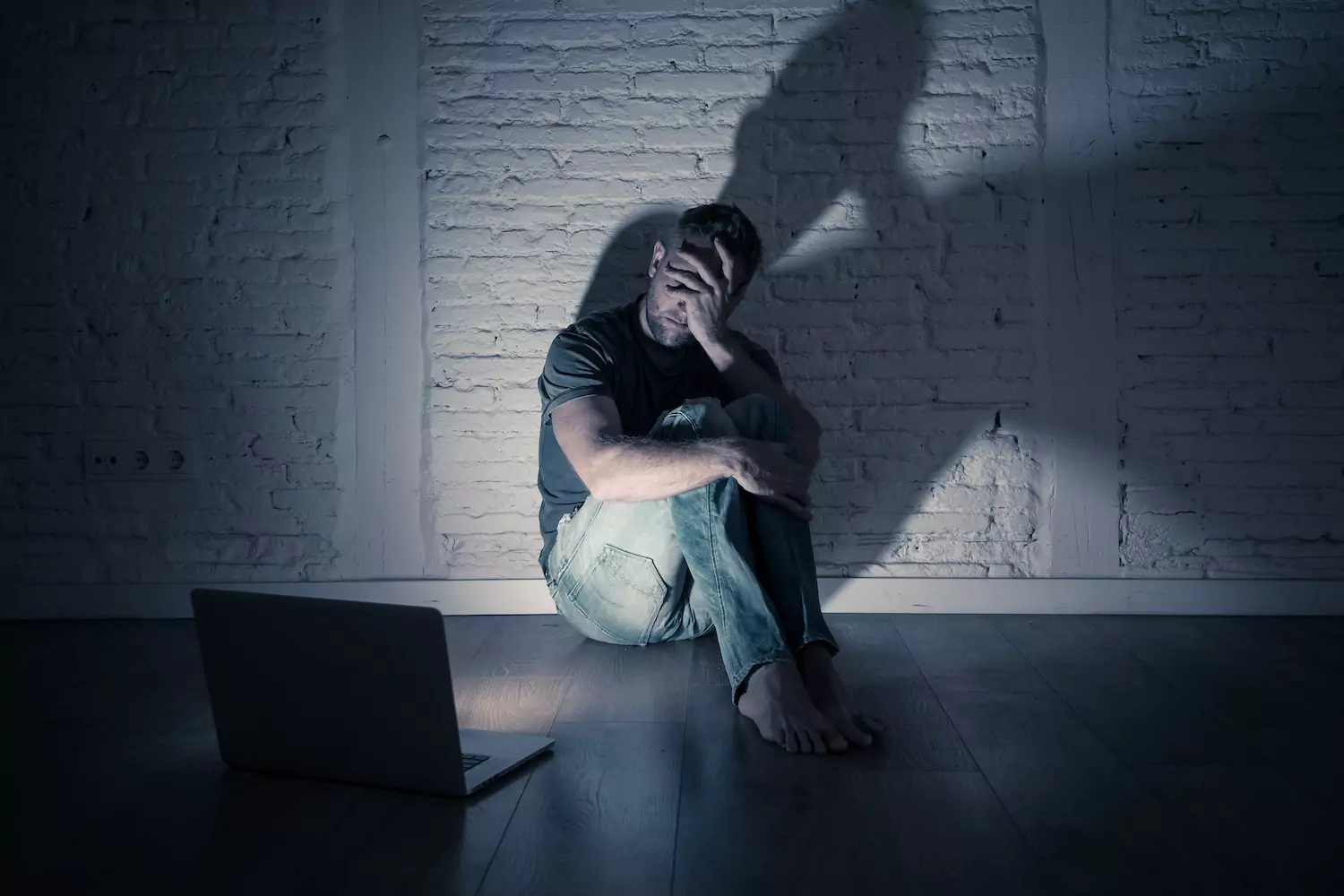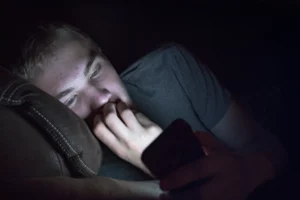In This Series:
Compulsive sexual behaviors and pornography addiction affect men and women, regardless of race or financial status. And those inside the church are not immune. Why is porn addictive? Naturally occurring pleasure chemicals are released into the brain when someone views sexually charged images. And whenever someone is depressed, angry, lonely, tired, unloved, rejected or even just uncomfortable, they may use sex and pornography to activate this “pleasure system high” that can lead someone into deeper stages of pornography addiction.
Any use of pornography is sinful and cripples the ability of the abuser to see sex and intimacy in a healthy and biblical light. It also subtly and increasingly changes the user’s perception of the opposite sex. This is because the brain becomes tolerant to the neurochemicals harnesses by pornography use and requires novel experiences to gain the same relief and pleasure. So habitual use of pornography can eventually progress into frequenting strip clubs, seeking prostitution, engaging in affairs, exhibitionism, voyeurism, sexual aggression, sexual harassment or pursuing other sexual activities. Though not every user will pursue such behaviors, pornography trains and entices people to cross boundaries in ways that were previously inconceivable to them.
What to do when porn enters a marriage?
First exposure to pornography
My first exposure to pornography was like a drug injected directly into my veins. I still remember those images. Like many people who become sexually addicted, my ongoing use of pornography started during my adolescent years.
The more pornography I consumed, the more shame I carried and the more I tried to hide. My consumption of pornography progressed to more graphic images so I could reach the same high that originally hooked me. Ultimately I came to that crossroad where images alone no longer worked for me — I wanted a real person to act out the things I was fantasizing about. I thought that getting married would eliminate my need for pornography … but it didn’t.
Progression of pornography addiction
Even though I knew using pornography was wrong, that wasn’t enough to stop me. I was out of control. My sin had numbed my will and power to choose. I was breaking every covenant I had made with God and my wife.
For the first seven years of our marriage, my wife didn’t know that I was consuming pornography. But she knew something was wrong because she observed the way I was looking at other women. And money was missing from our joint bank account.
I wanted to tell my wife about my sexual struggles, but I believed that if I told her it would end my marriage. I loved my wife but hated that broken part of me so much that I could not allow her into it. The more sexual boundaries I crossed, the more anxiety, pain and shame I experienced. The more I failed to have any control of it, the more I went into hiding.
Destroying my wife
As a Christian man, violating my marriage vows by fantasizing about other women (Matthew 5:27-30) was devastating to my wife. While women respond in various ways, my wife’s background and temperament led her down the painful path of blaming herself for my struggle. She was constantly dieting and excessively working out in the gym. She even had breast augmentation surgery, hoping to measure up to my impossible standards.
She wondered why I would look at other women and why she wasn’t enough. When she found out that I was going to strip clubs and prostitutes, she became suicidal. She incorrectly and sadly saw herself as the problem, with no hope of fixing the mess I had created.
Many well-meaning (but absolutely misguided) women advised her to buy a sexy night gown and to be ready for sex when I came home from work. My rejection of her at the door was only fueling her anxiety of never being enough.
In the sick depths of my addiction, I was more than happy for her to take the blame so that the focus was not on me. I had no idea how my behaviors were destroying her self-worth.
Fear of intimacy
Although I loved my wife, I was unwilling to be vulnerable enough to let her see the tortured and dark side of my life, which enslaved me to sex and pornography as a replacement for a healthy relationship with her. We are designed by God for connection, but the lifestyle of isolation robs us of that greatest prize of all: intimacy.
I wanted real relationship with my wife but I didn’t believe that I could be transparent with her. If I were real, that would be relational suicide. I believed the only way to meet my needs and be loved was to hide that ugly part of myself and find my own secret path to having my needs met. I thought I needed something that would not require me to risk rejection, something that I could control. I wanted something that met my perceived needs without ever having to risk my heart.
Pornography is addictive because it gives an illusion of intimacy. There is no way that a human can have a real relationship with an image on paper, a video clip or a digital image. A real person needs a deep connection with another faithfully committed human to fill that longing to be loved — and that longing cannot be primarily fulfilled in a sexual form.
I carried so much hate and disgust for myself. The shame and fear kept me from seeking help. Every time I visited a strip club, it increasingly desensitized my heart toward my wife. My tastes and expectations became more extreme from exposure to so many unhealthy sex acts. Eventually, my sex addiction cost me both my family and my church family. The weight of my shame became unbearable, and I wanted to die. My story followed the typical progression of addiction to pornography: early exposure, addiction, escalation, desensitization and acting out sexually.
True intimacy
You can’t heal what you hide. The only path to a healthy relationship with God and others was to come into the light with my struggles — no hiding, pretending or secrets. “But if we walk in the light, as he is in the light, we have fellowship with one another, and the blood of Jesus his Son cleanses us from all sin” 1 John1:7 (emphasis added).
My fear of being known was the very thing that was holding me back from experiencing freedom from addiction.
One fateful day, all my secrets came to light, and my whole world came crashing down. About a year after I had lost all of my relationships, I visited a pastor friend. Without having planned it, I confessed my deepest secrets to him, pouring out my failure, shame and guilt. When I was finally done, I was certain he would loathe and reject me. As he came around his desk toward me, I almost expected him to strike me in outrage. Instead, he grabbed me in his arms, embraced me and wept over me. He said, “I’m so, so sorry for the pain you must have gone through.”
In that office, for the first time in my life, I understood that God loves me. This friend showed that to me. His embrace demonstrated God’s love for me. This was the beginning of my healing process.
Healing
For any movement to truly begin in someone’s heart, they must seek and find a safe environment to divulge their struggles. Coming out of isolation and courageously expressing experiences — without mincing words or perceiving judgment — are liberating and the beginning of true health.
Realizing the power that secrets have is just the beginning. One-on-one specialized counseling is a key step. Next is faithfully attending a recovery group led by a safe, knowledgeable counselor. Through these two things, pornography users begin to overcome the fear of rejection and learn new ways of communicating their thoughts and emotions. People in recovery learn more about their patterns and schemes and see parallels in other people. Group strength further emboldens them to become healthy and remain in the light.
A spouse will only listen if the offender embraces a position of truth and transparency and invites the spouse to speak of the impact on his or her life. The next step would be for the couple to go to counseling together.
Trained counselors are indispensable in identifying core issues and working on behaviors. But a counselor can never replace the love that the addict so desperately needs to find in the church. Close friends, mentors and pastors can help by providing a safe, real-life relational context in which to progressively heal. Urging strugglers to engage formal counseling and a recovery group, and practically supporting them as they do so, are major aids to those in need. The most vital role the church can play is to provide recovery groups and mentoring programs where Christ’s love is demonstrated alongside competent addiction recovery principles. Ultimately this leads to deep and ongoing spiritual transformation, which is the real antidote to the insidious progression of pornography addiction.














